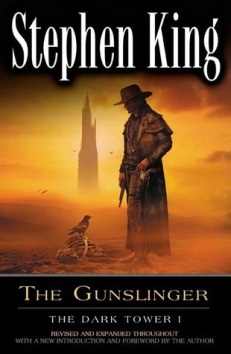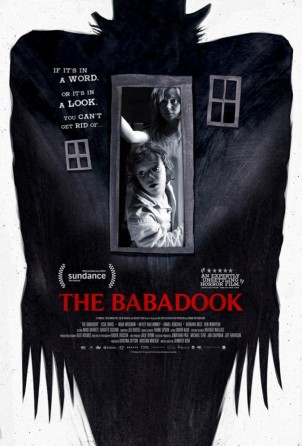
For the past five months, I’ve been working on a new book. Today, I’m thrilled to share a piece of that book with you.
Just to be clear, this is a real thing (not like that April Fool’s joke a while back). It’s a short story collection and it’s called Monsters at Dusk. About 40% of the book is comprised of previously published short fiction. The other 60% is original material.
As the title implies, this collection is all about monsters. They range from real to imaginary, folkloric to original, and literal to figurative. The “dusk” part refers to the transitional state of all these monsters; each undergoes a significant change. (Also, I think Monsters at Dusk just sounds cool.)
In the coming weeks, I’ll share story titles, the book cover, and further information about the collection. For now, I’ve got an excerpt for you.
This sneak peek comes from a story called “The Megrim.” Weighing in at nearly 20,000 words (or 75 Google Doc pages), “The Megrim” is the collection’s lengthiest piece. I began writing it late last year while concluding edits on Gerald Barkley Rocks. It was one of those rare instances where I simply started writing without any specific story in mind. I imagined a snow-covered village, a bookish priest, an always-hungry mercenary, and a mysterious monster lurking in the woods surrounding them. The name of that monster came to me immediately: The Megrim.
“Megrim” is not a made-up word, by the way. I first heard of it here:

Anyone who knows me knows of my love for the OG trading card game, Magic: The Gathering. One of the game’s most underrated elements is its use of language; there’s no shortage of obscure and interesting words in card titles. With names like “Avaricious Dragon,” “Abhorrent Overlord,” and “Immaculate Magistrate,” the game has no shortage of evocative words. So when I discovered “Megrim” wasn’t copyrighted, I stole it.
Not only did the word sound right for my monster, its definition aligned as well. According to the New Oxford American Dictionary, megrim is an archaic noun that means “depression” or “low spirits.” (Megrim also refers to “a deep-water flatfish of the European Atlantic coast,” but we’re not talking about that.) The words fit the monster, and so its title—and the story’s—were decided.
From there, the initial ingredients mixed together to form an epic fantasy/mystery hybrid, with a bit of horror sprinkled in. I loved writing it. In my (admittedly highly-biased) opinion, it’s the best story I’ve ever written.
So, without further ado, I give you an excerpt of “The Megrim” from the collection Monsters at Dusk. If you’d like to read the entirety of both, make sure to check back in the coming weeks for the official release date. Enjoy!
The Megrim
by Kyle A. Massa
1
When the first child vanished in the night, I called on the High Temple for aid.
Piebald the Cobbler laughed at me for doing it. “You’re always worrying, Pureman,” he said the following day as we trudged over fresh snow. “Too much for a young man like you. These children, they go wandering, they come back. I’ve got a boy of my own, you know. Once this one starts missing his sweets and his bed, he’ll return.”
Yet a day passed without sign of the child.
Halfmoon was his name. He had a permanent smile and a skill for mimicry. His imitations of Asrith the Librarian, Glubb the Builder, Murple the Veteran, and myself always drew laughs. Our little town felt colder after his disappearance, and not only due to the constant snowfall.
Each day I awaited a response to my message from the High Temple. Though I sent my fastest bird as courier, there were many leagues between our village of Greengrove and, well, anywhere. What’s more, we were surrounded by the Creaking Wood. Had my bird fallen prey to some creature of the forest? An owl? A hawk? Or something worse? Each day I waited. Each day I worried.
The second child disappeared three nights after the first. Her name was Zel and she was Bregna the Butcher’s daughter. She used to cry when her mother cut meat because she pitied the dead animals. I inspected the ground outside her home for tracks, but the night’s snowfall left nothing behind.
“I know who took them,” Pia announced one afternoon while we prepared the Temple for evening prayers. She was my apprentice, a girl of 11 with a sharp mind and a sharper tongue. “Obviously, this is the work of a cannibal. Probably likes the meat from the young ones. It’s more tender, I’d wager. Easier to mince.”
I tipped my head to the sky. “My apologies for her morbidness, Goddess. She reads too many fictions.”
“Not so many as you,” Pia snorted. “When will you tell the Goddess I’m ready to be a Purewoman? You said I was the other day.”
“I did. Though I believe I used the word ‘soon.’”
“Soon. Maybe. Someday. Never. When adults say them, they all mean the same thing.” She sighed. “Who do you suppose took the children, then?”
My gaze drifted out the window to the trees beyond. “I am not certain we’re dealing with a ‘who.’”
The snow fell, our village of Greengrove slept uneasily, and the next morning, my bird returned bearing a note. It was sealed with the mark of the High Pureman.
For Pureman Wendyll, it read on the outside. On the inside: Help is on the way.
#
2
A woman strode into Greengrove three days later. When she saw me, she spat.
I was certain she was a woman, yet she had the frame of a man: broad in the shoulders, thick in the arms, legs of solid rock. Her smile revealed several missing teeth. Her black hair was shaved on either side but lengthy down the middle; it formed a braid that hung to the small of her back and appeared heavy enough to double as a whip. She wore two axes, the heads of which peaked over either shoulder like stern metallic faces.
Again, she spat. I cannot say it was the best first impression.
The woman’s next action, after the spitting, was to squint at me with a combination of curiosity and distaste. “Is this Greengrove?”
“It is,” I replied. “Are you journeying to the capital?” I loved my town, but I had no illusions of its appeal to outsiders (or lack thereof).
“Been there before. It reeked. You the Pureman here?”
“I am. Wendyll is my name, Pureman Wendyll. And you are?”
The woman extended a hand. The hand was missing a pointer finger. That gave us something in common, for I too was missing fingers. Three, from my right hand.
“Name’s Nairn Lockwood,” she said. “Sent by your High Pureman to solve your little mystery.”
Nairn Lockwood. Nairn. Lockwood.
I’d heard the name before—or rather read it. Nairn Lockwood was a mercenary from distant lands who’d fought battles and liberated prisoners and dared to accept missions no sane person would take. Nairn Lockwood was the subject of countless books ranging from fact to fiction to somewhere in between. Nairn Lockwood was called Life-Ender, All-Warrior, Death-Blessed, and, for reasons I’d never discovered, No-Leftovers.
Nairn Lockwood was, in a word, legendary.
“Forgive me,” I said, taking her hand and shaking it. “I had not expected…”
“What? A woman? And an ugly one at that?” Her laugh sounded like a boot scraped over gravel. “And I hadn’t expected a schoolboy in a holy man’s robes. How old are you, Pureman? Eleven?”
“One and twenty,” I said, forcing a smile. “You misunderstand me. I had not expected the Temple to send someone of your reputation. Is it true you defeated the Champion of Luxdale in single combat?”
“Aye,” she said, dipping into a pocket and retrieving a strip of dried meat. She chewed, swallowed. “Thrice. I killed him, then someone claimed his sword and called himself the new Champion of Luxdale, so I killed him too. Then a third one named himself Champion—killed that one next.” She squinted at the sky. “Hmm. Was there a fourth one in there? Can’t recall.”
“And the conflict in the Nightlands. Did you truly negotiate the peace yourself?”
“More’s the pity. That war was good fun. But Empress What’s-Her-Name offered me thrice my weight in gold. And if you haven’t noticed, I’m a hefty lass.”
“And what of the Ventillion Mystery?”
“Wasn’t much of a mystery,” she mumbled through a mouthful of jerky. “Not after I solved it.”
“And now you’re here.” I pursed my lips. “Which I’m happy for, truly happy, but…isn’t this job a bit mundane for someone of your reputation?”
Lockwood said nothing. She only stared at me. The sound of wintry wind spoke for us.
“Lady Lockwood? Did you not hear me?”
“I did. But I don’t answer stupid questions. Now…” She finished the rest of her jerky in three titanic bites, then plunged her massive hands into her coat. “Shit on a brick, where’s that damn writ? Supposed to get me free lodging. And more important, free food.” (By now I was beginning to understand the “No-Leftovers” title.)
I inclined my head. “I’ll take your word for it, Lady Lockwood.”
“Oh no. No more of that ‘Lady’ shit. Lockwood is fine enough. Say that.”
“Lockwood, then. We thank you for coming.”
“Aye, whatever. Now where’s the dead boy?”
I blinked. “Girl. The latest is a girl. There are three of them in total: First a boy named Halfmoon, then a girl named Zel. And a third one just last night. My…my apprentice. Pia.” I swallowed down tears—I’d cried enough of those already. “They’re not dead, Lady—I mean, Lockwood. They’re only missing.”
“If you say so. Show me where the last one disappeared.”
“Her home? I think it best not to disturb the family at a time like this.”
“Do they want the boy to be found?”
“Girl. She’s a young girl.”
“Whatever. Do they want her found?”
“Beyond a doubt.”
“Then I’ll do some disturbing. Lead on, Pureman.”
Reluctantly, I led her through the streets (well, street) of Greengrove, to the home of Pia and her parents, Lara and Lorn. Our houses and shops were buried in snow, yet still I knew them: the leaning old library, Bregna’s box-shaped butcher shop, Glendon Glubb’s small abode, Mollo Murple’s even smaller one. And, rising above them all, the looming bulk of Lendo the Versatile’s mansion.
We reached the house a minute later. It was a modest dwelling, humble even for our little slice of the world. We stood on the edge of the village, mere yards from the trees of the Creaking Wood. Their bare branches reminded me of exposed bones. I dared not look too long.
“Here. This is Pia’s home.”
“‘Is’? You speak of this girl as though she’s still alive.”
“I pray that she is, and the others. The Goddess shall protect the young and innocent. I’m sure of it.”
Lockwood spat, then produced a blue sphere from another hidden pocket. “The Goddess protects nobody and nothing. In my experience, missing is usually dead. Cockatrice egg?”
I shook my head. Lockwood shrugged, then cracked the shell upon her knuckle and slurped the contents. “Mmm. I like them raw. Toughens the tummy.” She tossed the remains aside, approached the house, and thumped the door.
I hurried after her. “Pia is a curious girl. Insatiable. No matter how much she knows about a subject she always wants to know more. She reminds me of myself in that way. One day she’ll lead a Temple, and I’m sure she’ll do a better job of it than I have. She’s a kind child, a resourceful child, and she’s only just gone missing. I do hope you’ll be soft with her parents. This is a trying day for them. Will you promise me that?”
I stared at the mercenary. She stared back at me.
She said, “Sorry, did you say something? I wasn’t listening to any of that.”
The door swung open to reveal a woman and a man. The woman had thin lips and hair like straw. The man had a round belly and no hair at all. Both had red-rimmed eyes.
Lara and Lorn. Pia’s parents.
“Pureman,” said Lara, inclining her head. She then regarded Lockwood.
“This is our investigator,” I explained. “Nairn Lockwood. She’s come to help us find Pia.”
“Greetings. You know the name. A pleasure to meet me, I’m sure. Yes, all the stories are true. By chance do you have any pickled basilisk tongues? I’m fresh out of snacks and still feeling a bit peckish.”
Lara and Lorn gaped at Lockwood as though she was a speaking bear. “We…no. We have none.”
Lockwood shrugged. “Show me the last place you saw her.”
The couple led us through their house. It was a compact space, just a common area, two bedrooms, a hearth. The floorboards groaned with each step Lockwood took.
“Pia’s room is here.” Lorn pointed to a door, and then he began to weep. That made his wife weep, and together they excused themselves.
“Why do the bereaved always start crying before I can ask them questions?” Lockwood muttered.
I frowned at her. “Have you no compassion?”
“Com. Pash. Un.” She shrugged. “Never heard of it.” She pushed me aside and pressed into the room.
I am not a large man but Lockwood is a large woman. In that room there was barely enough space for us both. The window stood ajar, a detail which was common to all three disappearances. I relayed this information to Lockwood. “No noise in the night. No evidence of forced entry, not with any of them. Only open windows, like this.”
Lockwood poked her head out the window. She looked left, right, up, down. She turned, leaned over the child’s bed, and sniffed. “Are we to assume nothing’s been touched since last night?”
“I believe so.”
“Then look at the sheet. Tossed aside as if she rose from bed for a late-night pastry.”
“What are you thinking?”
“I’m thinking about thinking. Hush.” Her eyes bounced about the room: the bed, the door, each wall, back to the window. They stopped there. “A sleeper would have a clear view out that window, yes? Don’t answer that—I’m thinking aloud.”
She wasn’t wrong. From her bed, Pia would see…
“…The Creaking Wood,” I murmured.
“Aye. That.” Lockwood poked at a gap in her teeth with her tongue. Then she sprang to the bed and dove under the sheets.
“Lockwood!” I cried. “What in the name of the Goddess are you doing?”
“Putting myself in the victim’s shoes. Somewhat literally. Children don’t wear shoes to bed, do they?”
“But—but you’ll corrupt the scene.”
“Or I’ll have a sudden epiphany. Perhaps both. Now move, Pureman. You’re blocking my view.”
She was here to solve the mystery, I reminded myself. She was here to find Pia, and Zel, and Halfmoon. The High Pureman sent her to save our poor children. If she could do that, I could endure her rudeness. I released a breath, then stepped aside.
Lockwood stared out the window at the trees beyond. “I’m a little girl,” she chirped. “Imagine I’m just an innocent girl dreaming of candy and sunshine and whatever the hell else the little shits dream of. I’m dreaming, dreaming, and then—ah! Who’s that at my window? Pureman, stand outside the window for me.”
“What? Whatever for?”
“For the sake of authenticity. I must needs visualize the event, and you seem the sort who lurks outside rooms at night. I’m asking nicely.”
I don’t believe she was, but I stepped through and hauled myself outside anyway. “Does this suffice?”
“It’ll do.” She took a moment to consider me. “Are you sure of your age, Pureman? You still look like a child to me.”
“Now probably isn’t the time for such talk, Lockwood.”
“Very well, child. Knock on the window.”
“Knock? Why must I knock?”
“Must you question my every order? Just do it!”
I knocked on the window.
“Not so loudly, you dolt. You’ll wake the girl’s parents and be found for the villain you are.”
My face turned red. I do not often feel anger, but at that moment, it surged through me. “I did not commit this terrible deed!”
“Perhaps not, but you’re acting. You know of actors, yes? You have one here in town, I hear? Actors pretend, and so must you. Softly, please.”
I knocked. Softly. Lockwood nodded to herself. She rose, feigned drowsiness, then tottered to the window and climbed out, just barely squeezing through the frame. She stood there next to me and pondered. She stroked her chin with a finger—or would have, if the finger had been there.
“Sheets tossed aside, window unlatched, nothing broken, nothing heard. I do believe our girl went willingly to her captor.”
A fine observation, yet one I’d already deduced with the previous two disappearances. I informed her of this, and she glared at me.
“Fine then. A step further. I believe we’re looking for someone from your town, likely an older, charming presence. Someone others admire and respect. This is no stranger nor monster—this is someone the girl trusted, and trusted well enough to approach in the dead of night. What’s the population of this place?”
“Forty nine,” I said. “Or 50, if you count the babe in Lady Lobell’s womb.”
“That’s our list. Next comes a process of elimination. I suppose we can start by scratching off the babe.”
“But can you be certain we’re dealing with a human?” I countered. “Could it not be something more…supernatural?”
“Supernatural?” Lockwood made a face like I’d just removed my clothes and rolled in the snow. “What’s your evidence, Pureman? A sign from your Goddess?”
I pointed downward. Lockwood followed my gesture. Her eyes widened.
“Ah,” she murmured. “Interesting.”
Tracks. Tracks in the snow beneath our feet. Jagged, splayed shapes, monstrous and strange. Seven toes on the left foot, six on the right. Though our own tracks intermingled with them, these were significantly larger—perhaps two or three times the size. I had seen the tracks of the wyvern in a volume from the library, and the gray lurt, and the five-eyed lizapog. These tracks belonged to none of them. This was something much larger—and plainly not human.
I must admit, I relished the shock on Lockwood’s face, however briefly. “We townsfolk already tried following them,” I said. “They become lost among the underbrush of the forest. Yet their presence reinforces my theory. This was no human. This was the work of the Megrim.”
“The Megrim?” She laughed. “But why not the Wooly-man, or the Frostling, or the Naked Sprites of the Woods?”
I did not rise to her gibe. “Follow me,” I said. “I have something you ought to see.”
###
Kyle A. Massa is the author of the novel Gerald Barkley Rocks and the forthcoming short story collection Monsters at Dusk. His stories have appeared in numerous online magazines, including Allegory, Chantwood, and Dark Fire Fiction. He lives somewhere in upstate New York with his wife and their two cats.
© Kyle A. Massa, 2019. All rights reserved. No part of this excerpt may be duplicated or distributed in any form or by any means without expressed written consent from the author.















